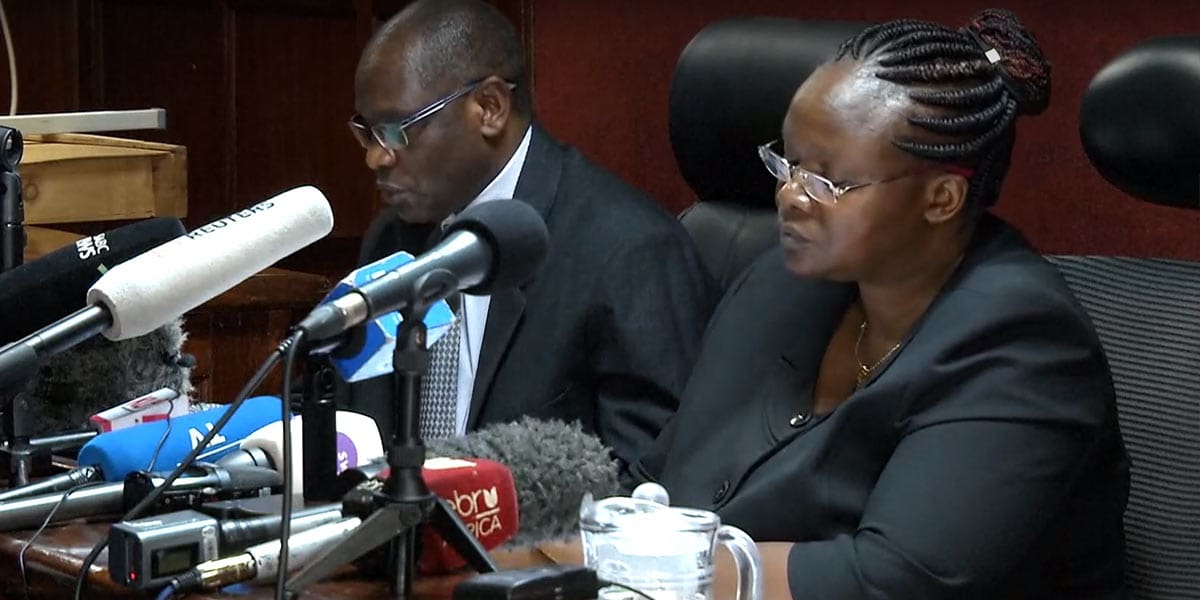Heartbreak as court upholds Kenya gay sex ban

The judges delivered a crushing ruling in Nairobi on Friday
Africa’s LGBTQ community is in disbelief as the High Court in Kenya upholds the country’s draconian colonial-era criminalisation of homosexuality.
In a devastating ruling, the court unanimously found that the petitioners had failed to show that the ban is unconstitutional or a violation of the right to privacy and human dignity.
The landmark case, first filed in 2016, challenged sections of the Penal Code that make consensual same-sex acts between adults illegal in Kenya.
“The petitioners have failed to prove that the provisions are discriminatory,” said Judge Chacha Mwita. “There is no evidence to show that the petitioners were discriminated and their rights violated as they sought healthcare.”
The judges further said the challenged provisions of the Penal Code are not vague and are not unfairly discriminatory because they refer to “any person” and not specifically LGBTQ people.
At one point, Judge Roselyne Aburili ellicted gasps from those in the courtroom when she stated that there is “no conclusive scientific proof that LGBTQ people are born that way.”
Kenya’s LGBTQ community has spent months anticipating the ruling and the decision is a crushing blow to LGBTQ rights in the region. It is a lost opportunity for Kenya to take a step forward in ensuring equality for all.
Kenya’s Penal Code is a holdover from its colonial era and like many former British colonies retains anti-buggery laws that make vague reference to “carnal knowledge against the order of nature” and “gross indecency.” Under the provisions, these acts are punishable with up to 14 years in prison.
A major setback to human rights
Njeri Gateru, Executive Director of the Kenyan National Gay and Lesbian Human Rights Commission (NGLHRC) — and the main petitioner in the case — expressed “extreme dissatisfaction” at the court’s decision.
“The NGLHRC has seen time and time again how these old colonial laws lead to the LGBT community suffering violence, blackmail, harassment and torture. They devastate people’s lives and have no place in a democratic Kenyan society,” said Gateru.
“The court has missed an opportunity to help ensure a future free from the intrusion of the state in our private lives, and to turn the tide for the LGBT community here at home in Kenya, and on the wider African continent.”
In a statement, Amnesty International Kenya said the ruling “is a major setback to human rights discourse, especially with regard to equality and non-discrimination.”
It called on Kenya’s Parliament to repeal laws criminalising same-sex sexual conduct “so that all people in Kenya fully benefit from the constitutional and human rights safeguards in the 2010 Constitution and international law that Kenya is party to.”
In the run-up to the ruling, social media platforms in Kenya saw a massive spike in homophobic posts as many lashed out against homosexuality and LGBTQ people.
Recent research found that LGBTQ discrimination in Kenya is costing the country hundreds of millions of dollars a year. Around 70 nations across the globe, including 32 in Africa, still outlaw homosexuality.
Leave a Reply